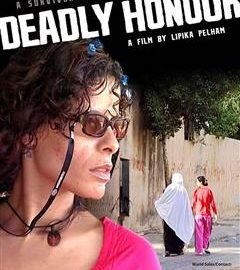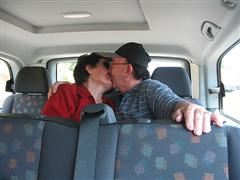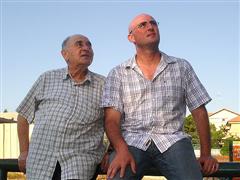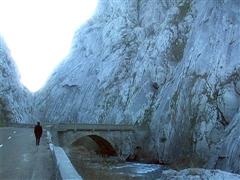Archives
1948
The film 1948 is a record of memories of a group of elderly Arabs. The director, Mohammad Bakri, employs poems Mahmoud Darwish. In their own words, the Palestinians interviewed describe the moments when they became refugees. They described the brutality in which they were deported, or the fear of massacre that made them and their families flee for their lives. They speak without blame or even protest.

Refugees
Crossing the desert on foot, desperate African refugees attempt to reach safety in Israel. But Israel is not just any country – and its own past as a haven for refugees from war torn Europe is no simple matter. The film follows various refugees as they struggle to find a place in a country that accepts them, but takes no responsibility for their acclimatization.

Deadly Honour
Narrated by a 15-year old girl, Salma, based on a real life survivor of honour killing, ‘Deadly Honour’ documents multiple murders and attempted murders of young women in the Israeli city of Ramle. Juarish is a closed neighborhood in Ramle where young girls grow up in fear anticipating their turn to face the killers. This fear is sealed with a code of silence – no one talks about the murders, no one goes to court. But the status quo changed one day when the body of a murdered woman was found in a disused well in the forest.

The Name My Mother Gave Me
This is a film about growth and self discovery. We follow Ethiopian and Russian Israelis who meet at a leadership training program in Israel. Their year of learning culminates in a journey to Ethiopia where the Ethiopian born participants return to their native villages and confront their roots. Back home in Israel, all the participants would consider themselves members of the fringes of Israeli society. But in the highlands of the Ethiopian landscape they discover the universality of their experiences and their shared commitment to their new home in Israel. How will this journey transform them?
Tartakover
A House in Jerusalem
Can a house be a metaphor for Arab-Jewish relations in Israel? Amos Gitai returns to the house in West Jerusalery?m he profiled in 1980. He interviews members of the Jewish families who live there, and he talks with the Arab family who lived in the house until 1948. They are now in East Jerusalem and pay a nearly furtive visit to the street in front of their old house. Gitai also interviews Palestinian laborers at work on renovations and excavating an old tunnel to the Holy Mount. What do people think of each other, what do they think of Israel, what do they think of co-existence? Do the current residents know the house’s history?

Joseph and Maria

A Fool’s Dream
Lev Syrkin was a successful artist in Moscow who dreamed of pursuing artistic and personal freedom in Israel. He abandoned his reputable status in Russia and moved to Israel with his entire family, only to be welcomed by indifference toward the mosaic art he practiced. Director Daniel Syrkin takes a journey through Israel, lovingly tracing his tenacious immigrant father’s struggles, accomplishments and hopes as an artist. Along the way, his father’s biggest dream becomes Daniel’s own: the creation of a huge mosaic portraying the dove of peace in the heart of Jerusalem. As this dream is revived, father and son encounter apathy and disappointment, but with a twist of optimism, which only fuels their dedication to public art.

Leon – A New Encounter (from the series – Sefarad: Caminos y Vida)
The film is an in-depth investigation of the history and relations between Jewish and Spanish cultures. It shifts from investigating the history of Jewish scholar, Moses de Léon to excavations at Puente del Castro.
